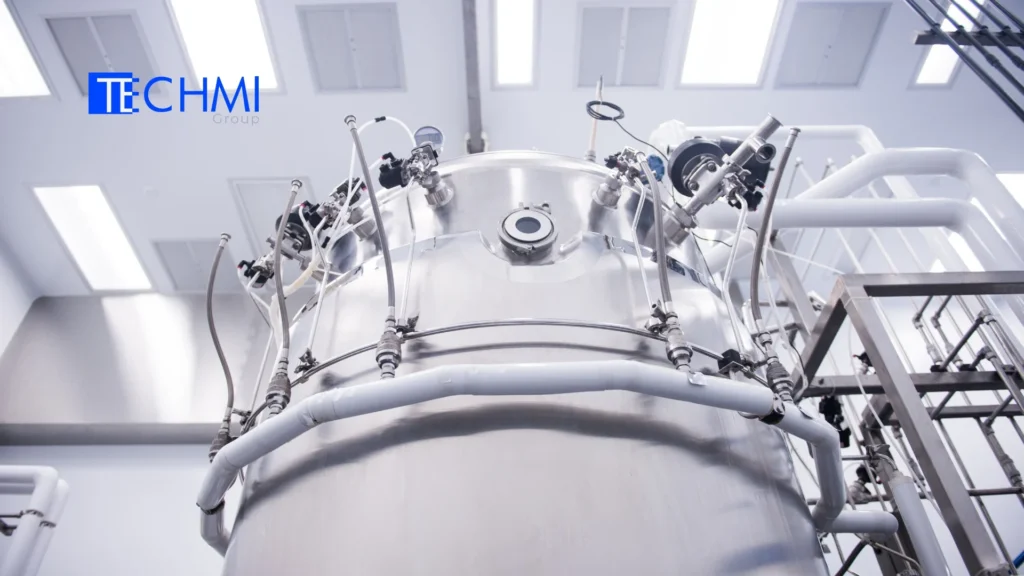Moving from an idea validated in the laboratory to industrial production is not simply a matter of “increasing volume”. It is a technical and strategic process that involves real challenges, fine-tuning and key decisions.
How to scale up a process from a laboratory to an industrial plant?
We explain what factors to consider when scaling up a bioprocess, and how you can do it safely, efficiently and cost-effectively.
1.Reproducibility of the process
In the laboratory, cultures are grown under ideal, controlled, small-scale conditions. But when we scale up, new variables appear:
- Differences in oxygen transfer
- Changes in heat distribution
- Increased risk of concentration gradients
- Effect of scaling on agitation
Therefore, it is essential to ensure that the process is robust and reproducible at different volumes.
🔧 Solution: conduct intermediate pilot tests (on 10-100 L equipment) before scaling up to 1,000 or more liters.
2.Proper bioreactor design
Not all equipment is suitable for all processes. It is essential that the bioreactor or industrial fermenter:
- Allow control and adjustment of temperature, pH, DO, agitation, etc.
- Be scalable without loss of biological efficiency
- Include sensors and automation for traceability
- Facilitate cleanability (CIP/SIP) and safe operation
At TECHMI Group we design customized bioreactors from 10 to 30,000 liters, adapted to your critical parameters and type of crop.
3.Hidden costs of scaling
In addition to the investment in equipment, it is necessary to consider:
- Energy costs for maintaining controlled conditions
- Consumption of large-scale culture media
- Need for trained personnel
- Losses due to failed batches during test phase
Well-planned scaling reduces the risk of unforeseen cost overruns and accelerates return on investment.
4.Automation and monitoring
Scaling up means working with higher volumes, but also with more data. A good control system allows:
- Real-time monitoring of pH, DO, temperature, foam, etc.
- Automate the addition of nutrients, defoamers or correctors.
- Record all parameters for traceability
- Detect deviations and respond in time
🔌 Our equipment is equipped with Siemens PLC and 10″ touch screen, compatible with SCADA and remote monitoring.
5.Validation and quality control
An essential step in scale-up is to validate that the final product maintains its efficacy, stability and bioactive properties when scaled up to industrial scale.
This may require:
- Reformulation
- Changes in the inoculation protocol
- New shelf life studies
- Field or final application performance trials
At TECHMI Group we offer support for the development and validation of the process in the laboratory before scaling up.
6.Regulatory compliance
In the industrial environment, regulations are more demanding: you must consider environmental, health and quality regulations.
Having equipment that complies with safety standards, certified materials and traceability makes this step much easier.
Scaling up a biotechnological process is not just about enlarging the tank. It is to adapt the entire system to a new reality without losing efficiency.
A good scaling allows you to:
✔️ Increasing production without compromising quality
✔️ Accelerate time to market
✔️ Differentiate yourself in innovation and sustainability
Are you ready to take the leap?
At TECHMI Group we help you scale your process from laboratory to industrial plant with customized solutions, technical support and equipment designed for your specific application.
Find out more at www.techmigroup.com



